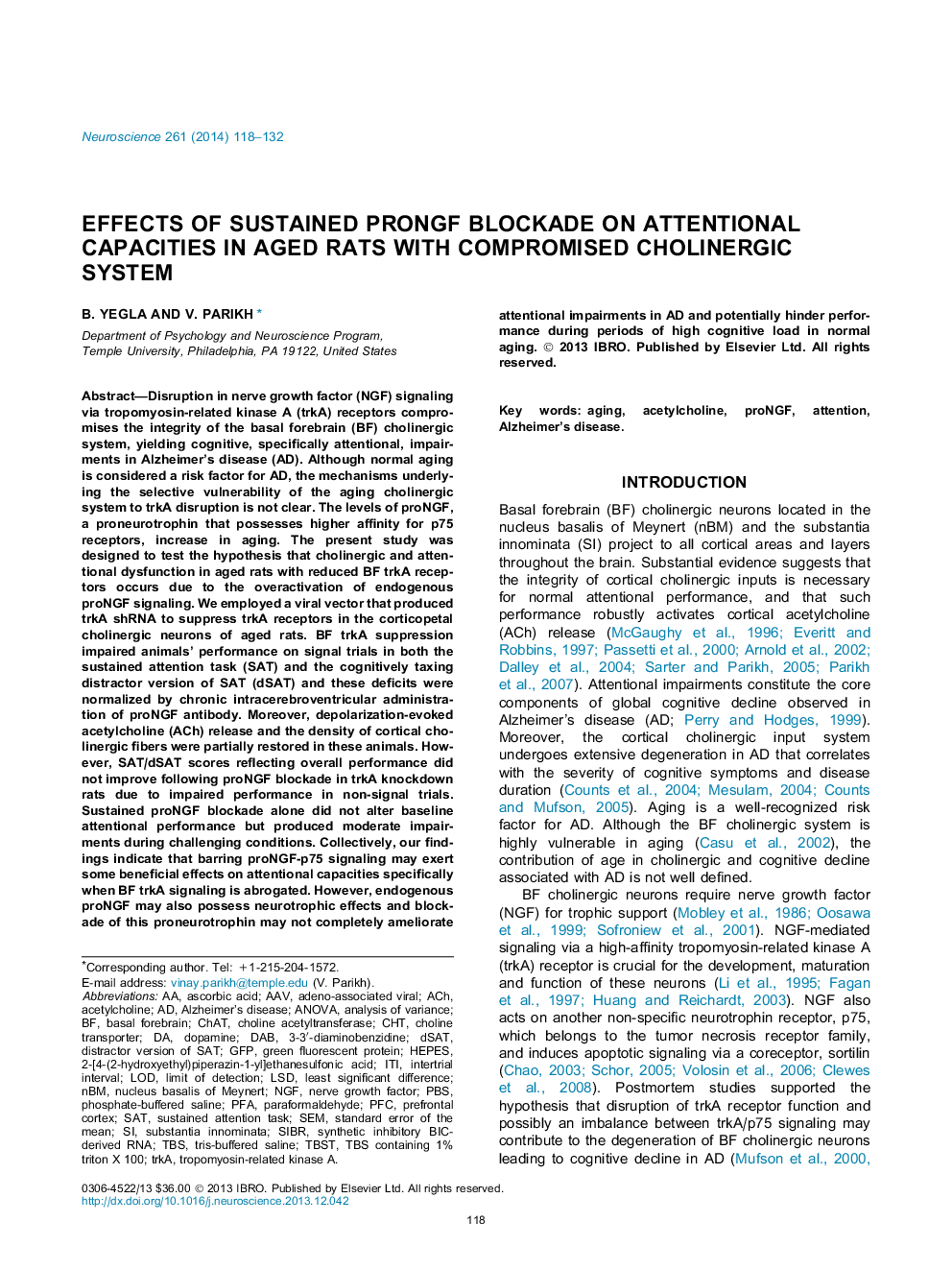| Article ID | Journal | Published Year | Pages | File Type |
|---|---|---|---|---|
| 6273924 | Neuroscience | 2014 | 15 Pages |
Abstract
Disruption in nerve growth factor (NGF) signaling via tropomyosin-related kinase A (trkA) receptors compromises the integrity of the basal forebrain (BF) cholinergic system, yielding cognitive, specifically attentional, impairments in Alzheimer's disease (AD). Although normal aging is considered a risk factor for AD, the mechanisms underlying the selective vulnerability of the aging cholinergic system to trkA disruption is not clear. The levels of proNGF, a proneurotrophin that possesses higher affinity for p75 receptors, increase in aging. The present study was designed to test the hypothesis that cholinergic and attentional dysfunction in aged rats with reduced BF trkA receptors occurs due to the overactivation of endogenous proNGF signaling. We employed a viral vector that produced trkA shRNA to suppress trkA receptors in the corticopetal cholinergic neurons of aged rats. BF trkA suppression impaired animals' performance on signal trials in both the sustained attention task (SAT) and the cognitively taxing distractor version of SAT (dSAT) and these deficits were normalized by chronic intracerebroventricular administration of proNGF antibody. Moreover, depolarization-evoked acetylcholine (ACh) release and the density of cortical cholinergic fibers were partially restored in these animals. However, SAT/dSAT scores reflecting overall performance did not improve following proNGF blockade in trkA knockdown rats due to impaired performance in non-signal trials. Sustained proNGF blockade alone did not alter baseline attentional performance but produced moderate impairments during challenging conditions. Collectively, our findings indicate that barring proNGF-p75 signaling may exert some beneficial effects on attentional capacities specifically when BF trkA signaling is abrogated. However, endogenous proNGF may also possess neurotrophic effects and blockade of this proneurotrophin may not completely ameliorate attentional impairments in AD and potentially hinder performance during periods of high cognitive load in normal aging.
Keywords
PFCPFANGFSATTBSITIGFPNBMAAVHEPESLSDTBSTtrkAproNGFdSATCHTPBSDABtropomyosin-related kinase A3-3′-diaminobenzidine2-[4-(2-hydroxyethyl)piperazin-1-yl]ethanesulfonic acidAscorbic acidAChAcetylcholineAlzheimer’s diseaseanalysis of varianceANOVATris-buffered salineAttentionLOD یا Limit of detectionleast significant differencestandard error of the meanDopamineAgingintertrial intervalnerve growth factorprefrontal cortexsubstantia innominatalimit of detectionPhosphate-buffered salineSEMnucleus basalis of Meynertadeno-associated viralparaformaldehydegreen fluorescent proteinbasal forebrainChATcholine acetyltransferasecholine transporter
Related Topics
Life Sciences
Neuroscience
Neuroscience (General)
Authors
B. Yegla, V. Parikh,
